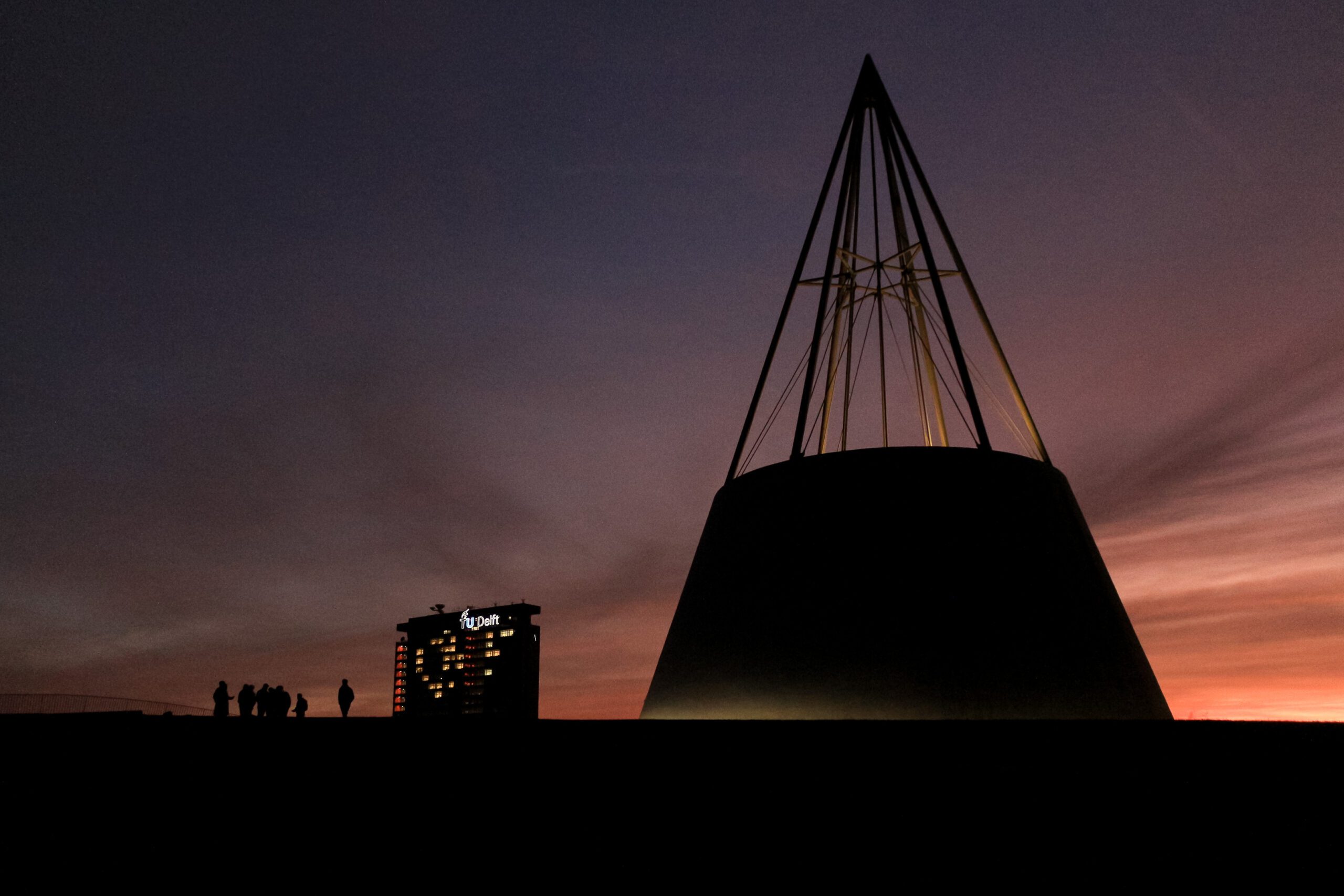All services and faculties of TU Delft have to cut back by 10 percent, but according to the Works Council, more is needed than this ‘cheese slicing method’. The council is asking the Executive Board for ‘vision’ and ‘courageous choices’, for example about Campus Rotterdam.
(Photo: Justyna Botor)
The Executive Board has instructed all faculties and services to cut back 10 percent, in order to achieve savings of 79 million euros by the end of 2027. The Works Council has ‘taken note of this with indignation’, it says in a response to questions from Delta. This indignation focuses on the government’s policy that hits TU Delft ‘right in the heart’, according to the council. It believes that investments should be made in education and science.
According to the Works Council, the cuts will directly affect the quality of education and research. For example, the representative body already sees problems arising because some faculties are deploying fewer student assistants. The council warns that these kinds of measures will further increase the workload and that they will reverberate for years.
Central control
At the same time, the council acknowledges that income and expenditure must be balanced again and that savings are therefore necessary, but questions the ‘cheese slicing method’ used. ‘This is not just a matter for the faculties, but also for the Executive Board, starting with a vision for the institution,’ the Works Council said in its response. For example, according to the council, issues such as the use of buildings, the educational programs on offer, the real estate strategy and the hiring of external employees require central management. ‘Courageous, but difficult choices will have to be made.’
‘Campus Rotterdam seems to be becoming financially unfeasible’
The Works Council is also referring to the central institutional strategy, in which even the new Campus Rotterdam is now a point of discussion. Because that project ‘now seems to be financially unfeasible’, according to the council. The Executive Board only wants to use external funds for the development of that campus, but does have a program budget of which 4 million euros is left for 2025. The Works Council wants to stop the spending: there should be no more ‘expensive studies’ to test the financial feasibility of Campus Rotterdam.
‘Lack of continuity’
The Rotterdam project is a spearhead for the Executive Board. It believes that TU Delft should grow in order to provide more engineers. Because growth is not possible within Delft due to lack of space, it has designated Rotterdam as one of the new settlement cities. But that same Executive Board, consisting of only two members, is about to resign. Board member Marien van der Meer, who is in charge of finances, will leave in August at the latest. Rector and President of the Executive Board Tim van der Hagen will leave in January 2026.
The Works Council has ‘great concerns’ about this ‘lack of continuity’, especially in a time of ‘uncertainty and tension’. ‘In an organisation where social safety is not in order, this requires extra care, transparency and safeguards.’ The council advises the Executive Board, deans and directors to adopt an ’empathetic’ attitude and to provide employees with the best possible guidance now that forced redundancies may be imminent.
The Works Council said that it will continue to closely monitor the cutbacks operation and invites employees to share their concerns and suggestions.
- Follow the news about the cutbacks in Dutch higher education and those in TU Delft via our dossier.
Do you have a question or comment about this article?
s.m.bonger@tudelft.nl


Comments are closed.